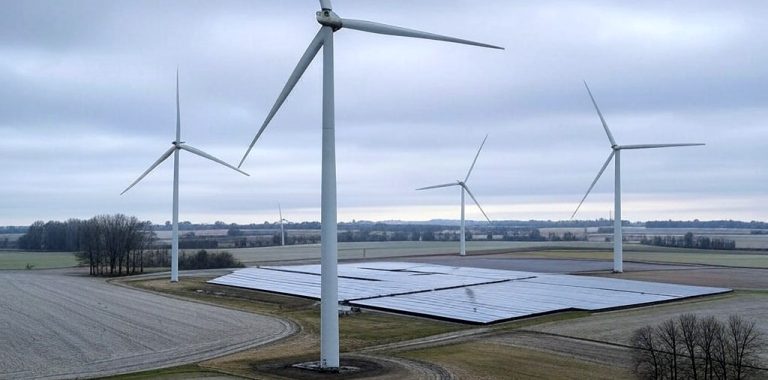
dark calm It's a cursed word in the German power industry.
The classic combination of a cold anticyclone, low temperatures (increasing demand) and an almost complete lack of wind (hindering wind power generation) creates one of the worst-case scenarios for electricity prices: It forces combined cycle power plants, which are much more expensive, to burn more natural gas, significantly increasing costs. [emphasis, links added]
This horrific cocktail is currently sweeping Central Europe, That has led to electricity prices in Europe's largest economy rising to levels not seen since the energy crisis.
German consumers pay an average of €395 ($415) per megawatt hour (MWh) Thursday, This is the highest value since December 2022, the height of Russia’s invasion of Ukraine Concerns about European gas supplies were justified at the time.
At certain times of the day you will have to go back further to find similar values: Prices on the German wholesale market exceeded 936 euros ($983) per megawatt hour between 5 p.m. and 6 p.m. The highest number in 18 years.
The main factor behind this upgrade is the lack of wind.
This time of year, Germany’s strong wind industry (onshore and offshore) Typically average power is around 20 gigawatts (GW)According to data from specialist portal Montel, thus becoming the country’s main source of electricity, On Wednesday, installation capacity will be just over 3 gigawatts.
Solar photovoltaics are also operating well below their potential due to cloudy skies, forcing combined cycle power plants (which burn natural gas to generate electricity) to operate at higher speeds than usual, Push up prices.
Unlike the worst days of the energy crisis in 2022 – when natural gas prices were at historically high levels due to Russia's invasion of Ukraine were the main trigger and the main focus – the situation now is purely temporary: When winds return and temperatures rise, wholesale power markets should also return to normal.
In fact, this isn't the first episode in recent months: In November, wind power's poor performance pushed prices in Germany above 800 euros ($839) per megawatt hour for some hours, only to fall back in the following days.
less gas stored
Relying on combined cycle to meet demand doesn't just have an impact on price.
Natural gas stored in underground tanks, a variable that has been closely watched since the energy crisis, has fallen sharply in recent weeks.
Compared with 98% natural gas in early November, Germany's reserves of this vital fuel used for heating and industry are currently around 87%, and their decline has accelerated in recent days.
Europe's average reserves, which reach 80% of their capacity, have also fallen sharply over the past five weeks (by 15 percentage points).
Take November as an example, Continental reserves fell at the fastest pace since 2016 due to greater use of combined cycle and heating.
“While reserves remain at very healthy levels, they have declined more than expected,” analysts at Arcano Research said.
READ THE REST OF EL PAÍS
